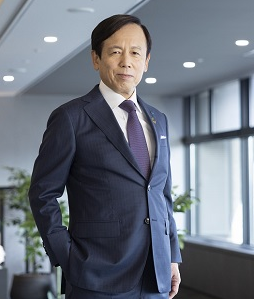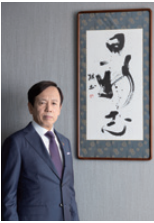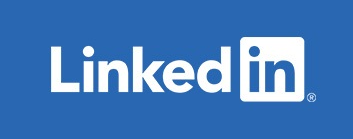
We will achieve sustainable growth
by resolutely implementing major reforms of business style based on the premise of “fair competition”
Shinichiro Funabiki
Director
President & Group CEO
My name is Shinichiro Funabiki, and I was appointed Representative Director, President & CEO of MS&AD Holdings in June 2024.
The major role expected of me is to achieve sustainable growth and enhance corporate value by utilizing the Group’s financial, human, and intellectual capital to the maximum possible extent, on the basic precondition of fair competition, in response to various problems resulting from business practices in the non-life insurance industry, including premium adjustment and improper insurance claims that have occurred in Japan.
Our market capitalization was ¥5.7 trillion as of the end of July 2024. We aim to achieve a market capitalization of ¥10 trillion and return on equity (ROE) in the mid-10% range as soon as possible, as part of our endeavor to catch up with and surpass competitors in Europe and America.
The insurance industry is now at a major crossroads. In Japan, the traditional market is expected to shrink owing to factors such as a declining population, the falling birth rate, and an aging population, and a decrease in traffic accidents caused by the spread of advanced safety devices. Globally, we must also respond to unprecedented circumstances, including climate change, the increasing severity and frequency of natural disasters, the social impact of the rapid evolution of AI, and threats in cyberspace.
To this end, I will make full use of my own strength, the ability to overcome obstacles, to resolutely implement reforms without being constrained by the conventional framework of the insurance business.
Our highest priority is the development of a system that supports our medium - to long - term growth strategy.
The Group includes five domestic insurance companies, which each have individual characteristics. Since the business integration in 2010, we have continued to grow by utilizing the strengths of each of these companies to the maximum possible extent as the pillar of our management strategy. As a result, in the domestic non-life insurance business, we are the top company in Japan in terms of sales, and we have strong business foundations supported by one of the largest customer and agent networks in Japan.
In addition, to complement our domestic non-life insurance business and build a balanced business portfolio, we have expanded the scope of our business in five business domains, including the international business, domestic life insurance business, financial services business, and digital risk/related services business.
To further pursue the Group’s comprehensive strengths, we will strengthen functions related to the management strategy of the Group as a whole, centered on the holding company, and allocate the necessary capital to growth areas in a timely manner.
From the perspective of corporate governance, to strengthen the supervisory function of the holding company’s Board of Directors in response to the demands of the times, we intend to improve its independence and objectivity, while also making prompt management decisions and engaging in bold risk-taking through in-depth discussions with Outside Directors.
Strategic equity holdings will serve as the source of funds for the implementation of medium- and long-term growth strategies. As of March 31, 2024, the Group’s strategic equity holdings had a fair value of approximately ¥3.6 trillion, and we aim to reduce this amount to “zero” by the end of March 2030. We will allocate the funds obtained from the sale of strategic equity holdings to new business investments, next-generation system/DX-related investments, and asset management.
The main targets for business investment will be the United States, the largest market for non-life insurance, and Asia, where the Group has strengths.
In the Lloyd’s and reinsurance businesses, which were the core businesses of Amlin (U.K.), which we acquired in 2016, we have faced various hardships, including an increase in large-scale natural disasters, the spread of COVID-19, and the war in Russia and Ukraine, but we have steadily increased profitability through disciplined underwriting and appropriate risk control, and as a result, this business has become a driver of growth in the international business. While building on these foundations, we aim to diversify sources of profit and distribute risks by expanding our business foundations in the United States and Asia.
In the digital/risk-related services business, we feel there is significant potential that goes beyond the concept of the insurance business, such as the creation of business opportunities through the development and sale of new solutions before and after compensation and protection, the provision of products and services that will help solve social issues, and the strengthening of our earnings foundations based on revisions to business processes.
In our Medium-Term Management Plan (2022–2025), we have positioned MS&AD InterRisk Research & Consulting as the core of the digital/risk-related services business, and we are promoting the development and sales of solutions that utilize digital data. In the past, we have introduced services that contribute to enhancing the value of our offerings, such as the “MS&AD Cyber Risk Finder,” which diagnoses and assesses vulnerability risks across the entire supply chain, to counter the threat of cyberattacks.
Our “Business Innovation Challenge Program,” in which all Group employees are invited to submit business ideas, has also led to a succession of new business initiatives. Our “Dashcam Road Manager” service for local governments, in which a dashcam installed in the customer’s vehicle automatically detects road damage, thus supporting road maintenance and management operations, is a typical example of this approach.
We will consider proactive capital allocation on the expectation that business development based on social issues, environmental changes, and customer needs will not only increase earnings but also contribute to improved profitability through the provision of accident prevention and recovery services, as well as synergies with existing businesses.
To firmly establish business operations that are based on the major precondition of fair competition, we will promote major reforms of business style, particularly in the domestic non-life insurance business.
We will engage in a thorough review of excessive core business support and secondment to customers and agents, which have become competitive disincentives, and we will restructure our relationships with agents, which are our business partners.
In addition to the original function of insurance, we will strengthen our solutions for before and after compensation and protection, enabling us to provide the most valuable products and services to our customers and society, and demonstrate our competitiveness and growth in the changing business environment in Japan.
Data, digital technologies, and AI will support stronger solutions for both before and after compensation and protection. At the same time, by digitizing all insurance-related procedures, we will promote bold reforms that will enhance customer satisfaction and convenience, as well as the productivity of the Company and our agents. In addition, we will pursue ease of use for products and convenience for procedures from the customer’s perspective and optimize the structure of our IT systems accordingly, thereby changing our earnings structure.
The reduction of our business expense ratio is also a pressing issue. Under our Medium-Term Management Plan, we will take steps to enhance operational efficiency and improve quality through our “One Platform Strategy,” whereby we will promote standardization, collaboration, and integration centered on the middle- and back-office divisions of Mitsui Sumitomo Insurance and Aioi Nissay Dowa Insurance. To remain the company of choice for customers in the domestic market, we feel that we are at a point where we must evaluate our options, including a review of our structure of having two core insurance companies.
We believe that the utilization of AI is key to improving operational efficiency. We have already created an environment where approximately 30,000 employees can safely use generative AI, and many examples of improved operational efficiency have emerged. In the Group, we plan to increase our digital human resources to 7,000 by 2025, and we expect these human assets to lead our digitalization efforts, along with approximately 100 data scientists. We also intend to incorporate outside knowledge as necessary to improve the effectiveness of operations that utilize AI.
Price competition might occur in the right competitive environment. If price competition occurs, profitability will undoubtedly decline. To sustainably continue providing products and services under such circumstances, more ingenuity is required, for example, in setting the scope of coverage and calculating optimal premiums. How do we evaluate and select the risks in the world? We have deepened our underwriting knowledge and enhanced our risk management capabilities through our Lloyd’s and reinsurance businesses. Now is the time for us to maximize the abundant underwriting expertise that we have accumulated.
It is “people” who will implement reforms. The Group has approximately 40,000 employees in Japan and overseas. An important role of management is to create an environment where employees are highly motivated and can work with trust in the Company.
Our business domains are increasingly expanding, both in Japan and overseas. Having each site share our Mission, Vision, and Values as shared values and executing growth strategies across the Group will contribute to our competitiveness in the global insurance market. 2024 marks the 100th anniversary of the establishment of our first overseas office in the United Kingdom. With sites in 48 countries and regions, the Group operates businesses with roots in local communities, and we thus believe this gives us a competitive advantage.
My motto has always been “Be sincere.” This is connected to “integrity,” which is one of the Group’s values, and it is the guiding principle that I consider most important. I think of “integrity” as a concept like the ethical principle of “what people are supposed to do.”
There are many athletes among the Group’s employees, and they actively participate in world-class competitions and have achieved results. Listening to them speak, I feel that top athletes always act with integrity and never forget to express gratitude to those around them. That is why they are able to practice with all their heart and do their best in games and competitions. This is true in business as well. We are grateful to our stakeholders. We provide better products and services, and in the event of an emergency, we will support our customers through prompt insurance claim payments. I hope that employees will be able to act without being conscious of this and instead take it for granted.
We will also consider introducing a new personnel system, replacing the seniority-based system, to ensure that every employee can grow further. We will allow employees to choose their own posts and duties at their own will. All employees of the Group will thus fully exercise their individuality and abilities as they actively participate. I hope to create such a company in the near future.
In recent years, we have made progress in curbing profit and capital volatility through efforts to improve profitability in the domestic non-life insurance business, improvements in profit levels through disciplined underwriting in the Lloyd’s and reinsurance businesses, reductions in strategic equity holdings, and stronger controls on catastrophe risk. As a result, the Company’s stock price has risen, with the price-to-book ratio (PBR) finally exceeding 1x in the second half of FY2023, and remaining at the 1.2x level as of the end of July 2024. A P/B ratio of 1x is only a passing point, and we aim to further raise the level of our P/B ratio.
To achieve this, we must enhance both profitability and growth, and we will strongly promote improvements to capital efficiency, while also raising our underwriting capabilities and operational efficiency.
We have continued to face difficult conditions concerning insurance underwriting income in the domestic non-life insurance business over the past few years, owing to factors such as the deteriorating profitability of voluntary automobile insurance as a result of the recovery of traffic volume in the post-COVID-19 era and inflation, and the fact that it is taking time to improve the profitability of fire insurance, partly because of the increase in windstorms and hailstorms.
To achieve ROE in the mid-10% range in such an environment, we must, of course, accelerate the reduction of our business expense ratio through such measures as operational efficiency improvements and reviews of the roles of the two core non-life insurance companies amid major reforms of business style, and at the same time, we must take urgent measures to improve profitability, including implementing premium rate increases after carefully explaining to customers that they are truly necessary.
When executing business investments, we will assess the investment from multiple perspectives, focusing on whether it will contribute to improving the return on risk (ROR) of the Group as a whole, as well as factors such as whether it will help diversify our portfolio and generate synergies with existing businesses, and whether it will provide capabilities that will help accelerate the Group’s growth.
We will also further strengthen profitability improvements in existing businesses.In the first stage of the current Medium-Term Management Plan, we have been reviewing and reconfiguring our portfolio after resolutely deciding to withdraw from the nursing care business in Japan, as well as retail insurance in Brazil, telematics insurance in the United Kingdom, insurtech in the United States, and other businesses overseas. In business management, we will use ROI, which measures return on investment, as a monitoring indicator as we take steps to shift capital from less profitable businesses to more profitable ones.
Furthermore, in terms of shareholder returns, we will realize returns commensurate with steady profit growth in line with our basic policy of stably returning 50% of Group adjusted profit, including gains from the sale of strategic equity holdings. In addition, we will emphasize predictable returns by limiting volatility in profits and capital.
Since 2021, when I became president of Mitsui Sumitomo Insurance, I have devoted significant time to listening to the views of our stakeholders. We held so-called town hall meetings with employees in 68 departments and branches in Japan and overseas in FY2023 alone. We have promptly utilized the various opinions we have received in product and service development, system development, and human resource policies. For example, we achieved results such as jobs that contribute to society and facilitate reskilling thanks to learning things from employee input.
As CEO, I would like to have as many opportunities as possible to directly engage in dialogue with shareholders and investors. We will take your comments and suggestions seriously as we endeavor to increase shareholder value. We also hope to increase the number of investors who become new shareholders by carefully communicating the Group’s growth story to the stock market.
As the head of the Group, I will exercise leadership, so please look forward to the future growth of the Group.

Even if we achieve the targets that we have set for major reforms of business styles, it will not mean the end of our reforms. This is because insurance is a business that should change in line with people’s mindset and the state of society.
The scroll in the photo was written by my calligraphy teacher. It says “nisshin-no-kokorozashi”, which means “a positive attitude of trying to make progress with renewed aspirations day by day”. I want to always look at things from new angles and create a world supported by a new sense of values.





